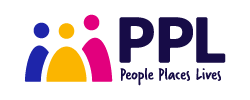Modern Slavery & Human Trafficking
Introduction
This statement sets out PPL's actions to understand all potential modern slavery risks related to its business and to put in place steps that are aimed at ensuring that there is no slavery or human trafficking in its own business and its supply chains. This statement relates to actions and activities during the financial year 1 July 2021 to 30 June 2022.
As part of IT and managed services industry, the organisation recognises that it has a responsibility to take a robust approach to slavery and human trafficking.
The organisation is absolutely committed to preventing slavery and human trafficking in its corporate activities, and to ensuring that its supply chains are free from slavery and human trafficking.
Organisational structure and supply chains
PPL UK Limited provide IT software and services, primarily from and within the UK.
The UK Management team is responsible for the organisation's anti-slavery processes and will liaise with other relevant departments to ensure that risk analysis and investigations/due diligence in relation to modern slavery and human trafficking is carried out as required.
The Management Team will also ensure that employees are reminded of their responsibilities and compliance required on the issue of modern slavery so that everyone understands and complies with this policy. Training is provided during staff inductions and periodic briefings and communications to the UK team
Relevant policies
The organisation operates the following policies that describe its approach to the identification of modern slavery risks and steps to be taken to prevent slavery and human trafficking in its operations, the details of which are included in the Staff Handbook.
- Whistleblowing policy- The organisation encourages all its workers, customers and other business partners to report any concerns related to the direct activities, or the supply chains of, the organisation. This includes any circumstances that may give rise to an enhanced risk of slavery or human trafficking. The organisation's whistleblowing procedure is designed to make it easy for workers to make disclosures, without fear of retaliation.
- Employee code of conduct- The organisation's code makes clear to employees the actions and behaviour expected of them when representing the organisation. The organisation strives to maintain the highest standards of employee conduct and ethical behaviour when operating abroad and / or managing its supply chain.
- Supplier code of conduct- The organisation is committed to ensuring that its suppliers adhere to the highest standards of ethics. Suppliers are required to demonstrate that they provide safe working conditions where necessary, treat workers with dignity and respect, and act ethically and within the law in their use of labour. The organisation works with suppliers to ensure that they meet the standards of the code and improve their worker's working conditions. However, serious violations of the organisation's supplier code of conduct will lead to the termination of the business relationship.
- Recruitment/Agency workers policy- The organisation uses only specified, reputable employment agencies to source labour and always verifies the practices of any new agency it is using before accepting workers from that agency. PPL also ensures that strict verification of potential employee’s right to work is carried out before any offer of employment is made
Due diligence
The organisation undertakes due diligence when considering taking on new suppliers, and regularly reviews its existing suppliers. The organisation's due diligence and reviews include:
- mapping the supply chain to assess risks of modern slavery and human trafficking;
- evaluating the modern slavery and human trafficking risks of each new supplier;
- reviewing on a regular basis all aspects of the supply chain based on the supply chain mapping;
- invoking sanctions against suppliers that fail to improve their performance in line with any agreed action plan or seriously violate our supplier code of conduct, including the termination of the business relationship.
Training and Performance indicators
To keep reinforcing the compliance of this policy with our employees, we will raise awareness of modern slavery issues by emailing our Anti-Slavery and Human Trafficking Policy to all employees as well making it available in the staff handbook. We will also continue to create awareness on modern slavery issues through training workshops and annual update communications. Our zero-tolerance approach to modern slavery will be communicated to all suppliers, contractors and business partners at appropriate points during our business relationship with them and reinforced as appropriate thereafter.
The organisation's modern slavery training:
- our business's purchasing practices, which influence supply chain conditions and which should therefore be designed to prevent purchases at unrealistically low prices, the use of labour engaged on unrealistically low wages or wages below a country's national minimum wage, or the provision of products by an unrealistic deadline;
- how to assess the risk of slavery and human trafficking in relation to various aspects of the business, including resources and support available;
- how to identify the signs of slavery and human trafficking;
- what initial steps should be taken if slavery or human trafficking is suspected;
- how to escalate potential slavery or human trafficking issues to the relevant parties within the organisation;
- what external help is available, for example through the Modern Slavery Helpline, Gangmasters and Labour Abuse Authority and "Stronger together" initiative;
- what messages, business incentives or guidance can be given to suppliers and other business partners and contractors to implement anti-slavery policies; and
- what steps the organisation should take if suppliers or contractors do not implement anti-slavery policies in high-risk scenarios, including their removal from the organisation's supply chains.
Board approval
This statement was approved on 11th November 2022 by the organisation's board of directors, who review and update it annually.
